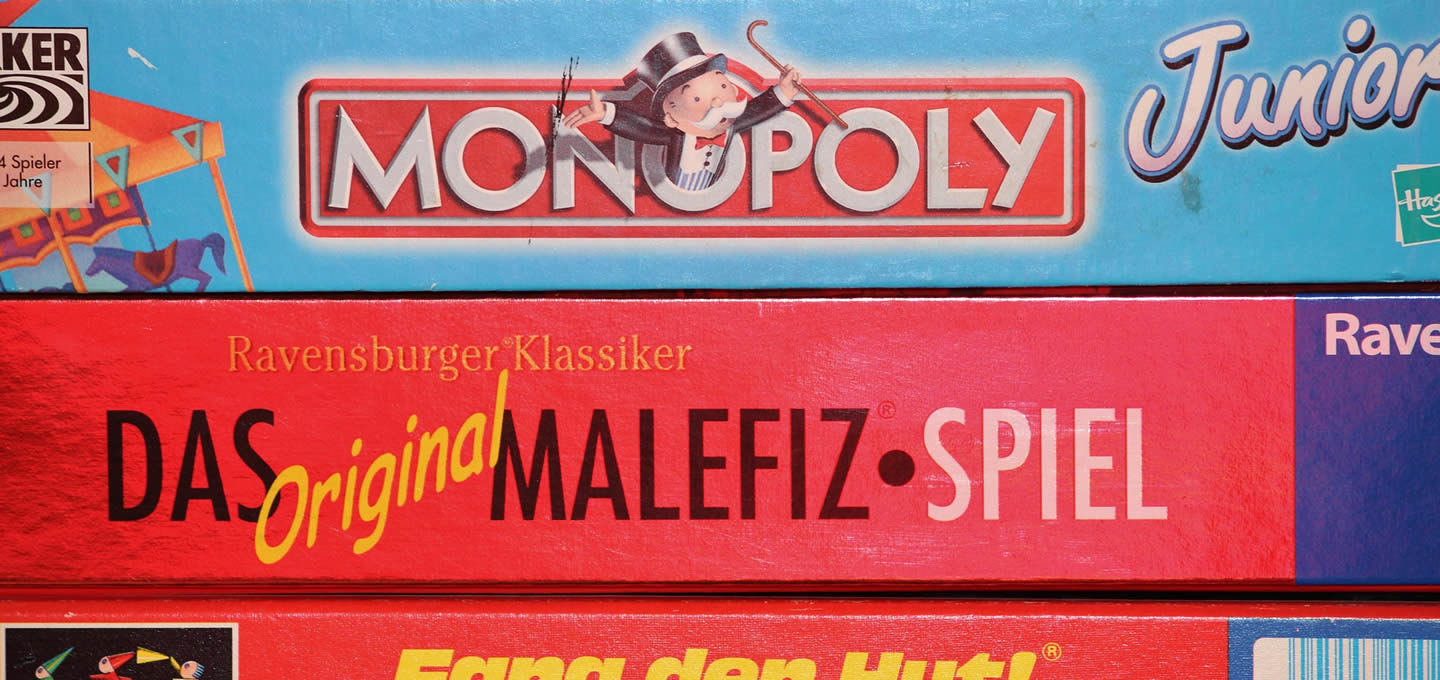Coming up with a name for your business or product can be a hard task – it needs to be memorable, easy to spell, unique, and most importantly not infringing on anyone else’s trademark. Games and businesses share a lot in common, and choosing a name is no different – here we explore the history of three popular games titles to give you some inspiration.
Monopoly
Monopoly is one of, if not the most famous and widely played board game in the world, where players roll dice to move around the board with a view to buying property to develop with houses and hotels buy property and sending their opponents in bankruptcy. Many a family argument around the world has been started by the game, but where did it get its name?
The first monopoly-type game on the market was created by Elizabeth Magie in 1903 to help explain the idea of single tax theory proposed by Henry George. The game was designed to to demonstrate the economic ill effects of land monopolism and the use of land value tax as a remedy for them, and Magie was granted a patent for “The Landlord’s Game” in 1904 and then again in 1923.
The Parker Borthers created their own version of the game, named “Fortune”, but managed to convince Magie to sell them the rights to The Landlord’s Game in 1935 for $500, and they chose the name Monopoly, possibly as a nod to its roots and an left-wing economic teaching tool.
Mario
Nintendo’s Mario character has appeared in over 200 video game titles, sold over 195 million units, and even appeared in his own films and cartoon TV show – he is undoubtedly one of the world’s biggest video games characters.
The character first appeared in the video game Donkey Kong as “Jumpman”, and was pictured wearing a hat purely because it was easier to draw than hair. And like many popular characters, he was actually named after a real person – Mario Segale, the landlord of Nintendo of America’s office, who barged in on a company meeting demanding an overdue rent.
Poker
The game of poker is thought to have originated from the Persian game of As-Nas, but the name itself is more likely to have come from similar games played in Europe. In the 19th century, the Irish played a game called “Poca” (“Pocket”) and the French played a game called “Poque”, but both are believed to be derived from the German game “Pochen” (“to brag as a bluff”), all of which could have been combined or corrupted into the English word “poker”.
The English language knack of taking words from other languages, traditionally mostly French and German, and putting them to new uses is well known. When Americans started to gamble on the game whilst on Mississippi riverboats in the early 19th century, first with a 20 card deck and then later with the full 52-card French deck, it is likely that the new word evolved to fit the local accents and spellings. The rest is history, and after 200 years, whether you are playing with your friends or online at casino.paddypower.com, everyone know’s the game as “poker”.
Photograph by Counselling

